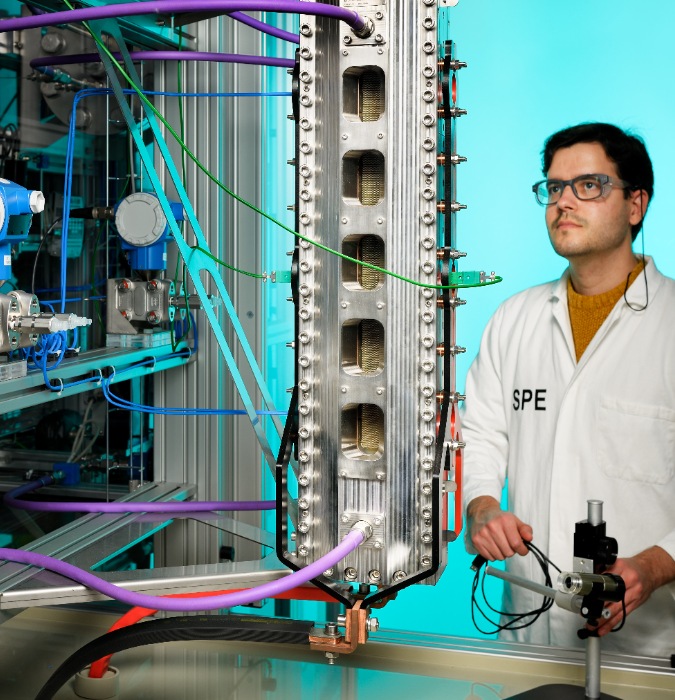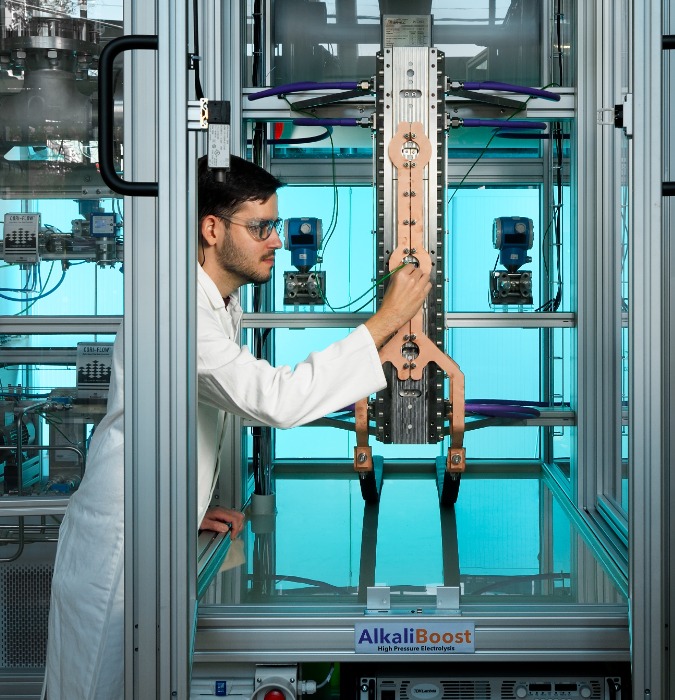Working in the Energy Materials in the Netherlands
Quickly go to
- Qualifications & University Programmes
- Available Roles
- Key Dutch Regions
- Entrepreneurship
- Start your career in the Netherlands!
- More on Energy Materials in NL
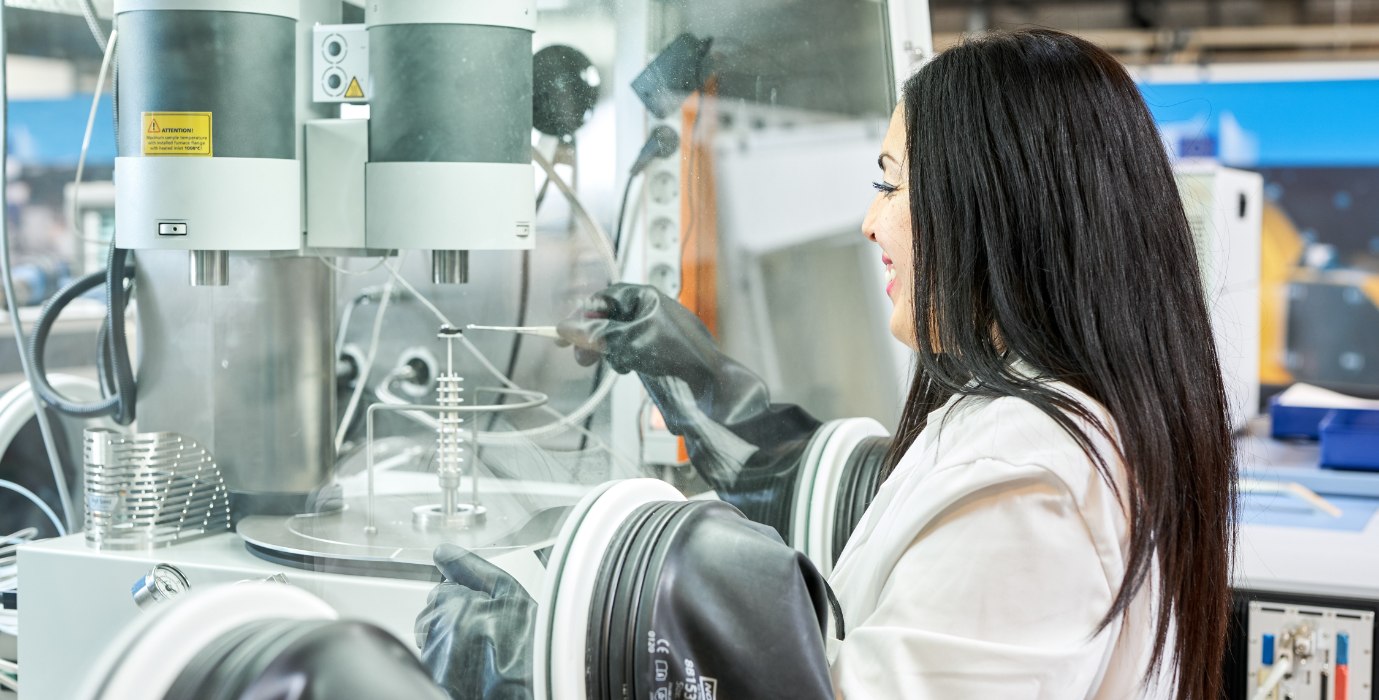
Qualifications & University Programmes
The Netherlands offers a range of degrees in energy studies, from Bachelor’s to PhD levels, focusing on traditional and modern energy sources. The Dutch energy materials sector careers often require engineering, chemistry, or related field degrees.
“There’s a good ecosystem here in the Netherlands where research is picked up by universities, institutes, and companies like Philips and Shell.”
- Richard van de Sanden, Group Leader, DIFFER and Scientific Director, EIRES
In the Netherlands, a number of prestigious universities are leading the way in specialized programs focused on energy materials, shaping the future of sustainable energy. At TU Delft, students can immerse themselves in Materials Science and Engineering, where they explore innovative solutions for energy challenges. Wageningen University offers a program in Sustainable Energy Technology, emphasizing environmentally friendly practices. The University of Twente features an Advanced Materials Engineering course, focusing on cutting-edge materials for energy applications. Eindhoven University of Technology champions High-Tech Materials Innovation, fostering advancements in energy efficiency and technology. Hanze University provides a unique Renewable Energy, Materials, and Processing program that delves into biogas production and renewable resources, preparing students for impactful careers in this vital sector.
Various other universities offer MSc programs in Energy Studies, such as MSc in Energy and Environmental Sciences and MSc in Engineering, focusing on renewable energy technologies and resource management.
Advanced degrees in Materials Science or Energy Technologies, certifications in sustainability, and strong computational and analytical skills are a few recommended qualifications.
Available Roles
The energy materials sector offers a diverse range of roles, each playing a crucial part in advancing sustainable energy solutions. Research Scientists focus on discovering new energy materials and technologies that can drive innovation. Materials Engineers work on developing and optimizing processes for renewable energy production, ensuring efficiency and effectiveness in energy systems. Sustainability Consultants provide valuable advice on implementing sustainable practices and technologies, helping organizations reduce their environmental impact. Product Development Specialists concentrate on creating new energy products that meet market demands. Energy Systems Analysts analyse energy consumption and efficiency, identifying areas for improvement. Renewable Technology Researchers investigate advancements in renewable technologies, contributing to the ongoing evolution of the energy landscape.
As companies expand to meet growing demand, there are more opportunities across various expertise levels. Average annual salaries range from €45,000 to €85,000, depending on experience and specialisation.
“The way the ecosystem is set up in the Netherlands... gives you a really nice opportunity to already start exploring while you’re studying."
-Pau Brossa Rodriguez, Co-founder Integer Technologies
Specialists in renewable technologies, chemical engineering, bioprocess engineering, and project management are in demand. The competitive job market is particularly favourable for skilled professionals in multinational companies and advanced renewable energy projects.
Key Dutch Regions
The Netherlands hosts key energy materials hubs, with North and South Holland driving innovation. Amsterdam and Rotterdam attract startups with access to talent and investment opportunities, while Eindhoven’s High-Tech Campus and Delft’s technical ecosystem focus on advanced technologies.
“We operate from the High Tech Campus in Eindhoven and the Brightlands Chemelot Campus in Geleen. This connection is an excellent opportunity for foreign startups, allowing them access to knowledge in both sectors.”
-Nicole Meulendijks, Deputy Research Manager TNO, Dept. Materials Solutions
Other hotspots include Wageningen for sustainable research, Rotterdam for port and offshore energy technologies, and Groningen for renewable energy studies.
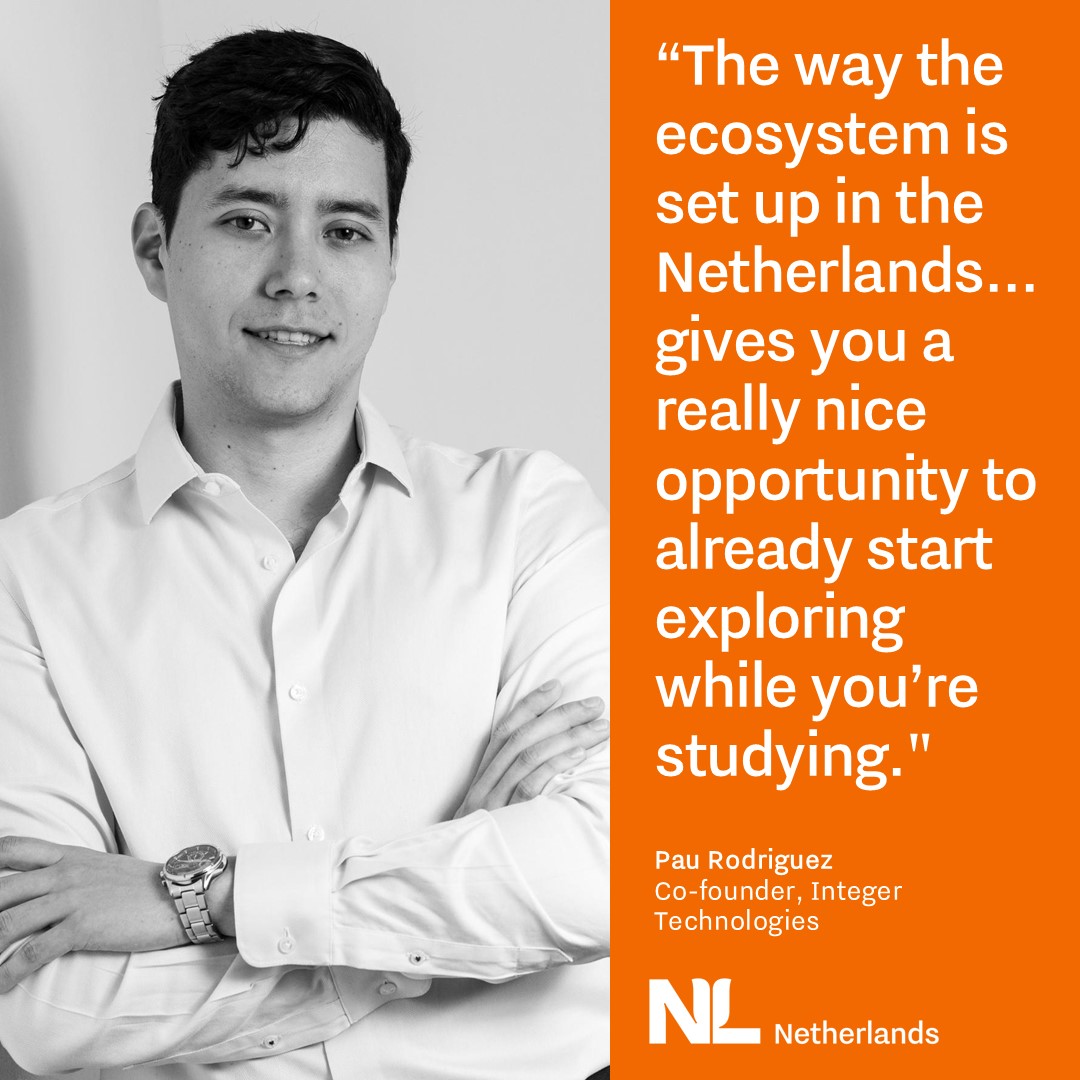
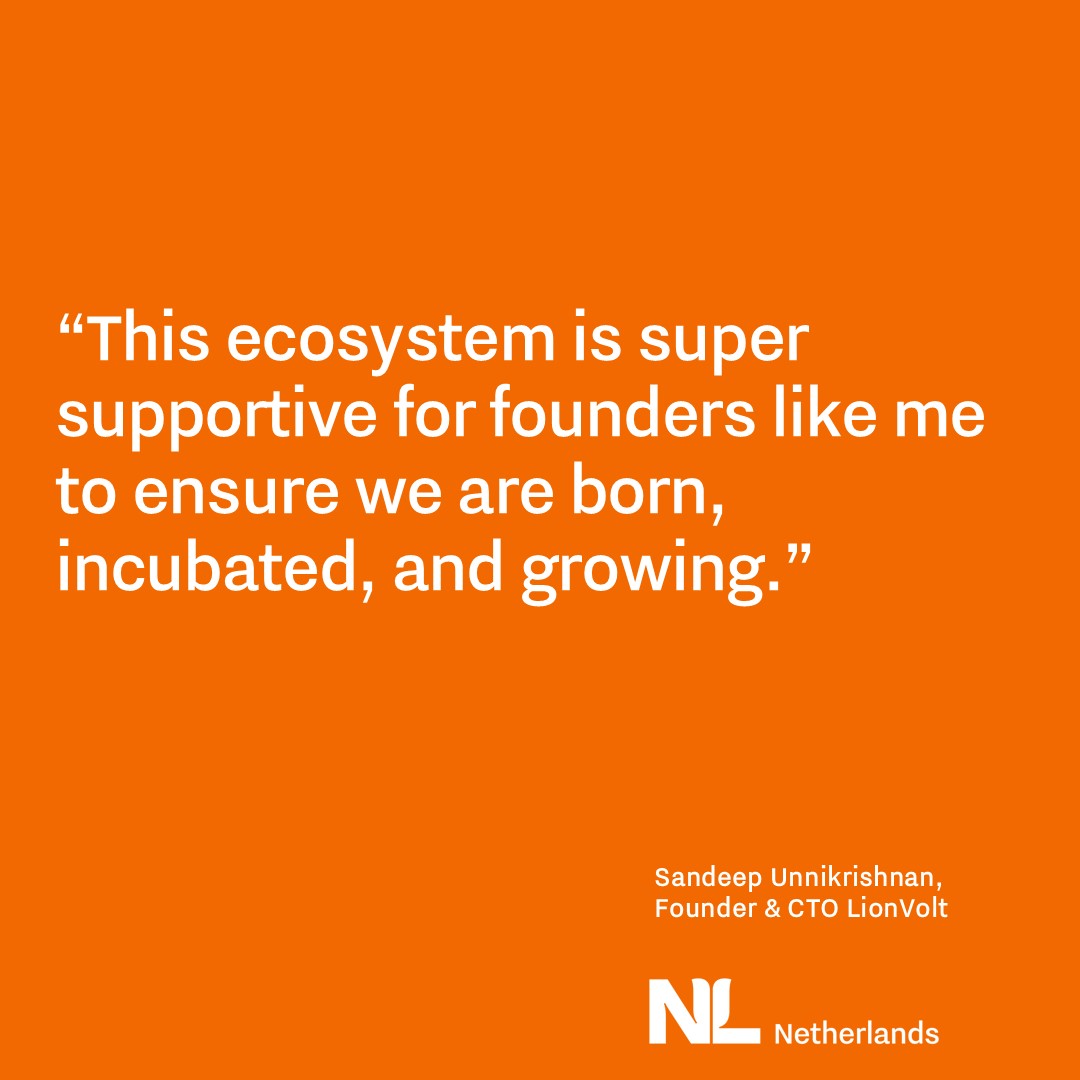
Entrepreneurship
Entrepreneurship in the Dutch energy materials sector is flourishing, with startups emerging to tackle sustainability challenges. The government offers extensive support through funding programs, access to venture capital, incubators, green technology grants, simplified business registration, and international networking opportunities. Innovation hubs in Eindhoven and Rotterdam further foster growth in the energy sector.
“This ecosystem is super supportive for founders like me to ensure we are born, incubated, and growing.”
- Sandeep Unnikrishnan, Fouder & CTO LionVolt
Sandeep states that the country provides a highly supportive environment for energy materials startups through subsidies, innovation programs, and collaborative ecosystems. Organisations like TNO and initiatives such as High Tech XL foster growth and innovation. The Dutch energy landscape is dynamic, with startups innovating solutions to enhance energy distribution and address the intermittency of renewable sources. Key focus areas include battery technologies, green hydrogen, and smart grids.
Since 2020, investments in renewable energy startups have exceeded $1 billion, with over $800 million secured by early 2024. Some promising startups include Healix Clean Tech tackling plastic pollution, RIFT leading the clean fuel revolution, AMMP Technologies offering distributed renewable energy management solutions, Hello Energy promoting net-zero real estate and Thermeleon providing sustainable heat storage solutions.
These startups generate clean power and empower consumers to manage their energy usage effectively.
Working in the energy materials sector offers numerous opportunities for entrepreneurs and skilled migrants looking to contribute to sustainable innovations while enjoying a supportive environment that values education and entrepreneurship.
Start your career in the Netherlands!
- Welcome to NL Job portal
More on Energy Materials in NL
To dive deeper, explore our articles on the Energy Materials and the 10 most important trends.
